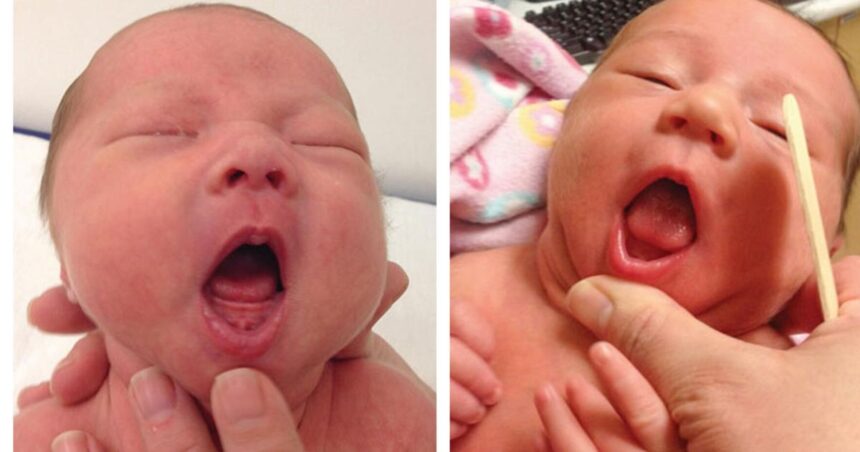NEW YORK — Tongue-tie, a condition in infants that can affect breastfeeding, may be overdiagnosed in the U.S. and too often treated with unnecessary surgery, a prominent doctors’ group said.
This combination of photos shows a baby with ankyloglossia where the tongue does not extend beyond the gums, left, and a baby with an indentation at the tip of a the tongue that may be a sign of ankyloglossia.
The American Academy of Pediatrics is the latest, and largest, medical society to sound an alarm about the increasing use of scissors or lasers to cut away some infants’ tongue tissue when breastfeeding is difficult.
“It’s almost an epidemic,” said Dr. Maya Bunik, a Colorado-based co-author of the report.
Experts say there isn’t a good count of how many infants each year are being treated for tongue-tie with surgery, though Bunik believes the annual tally may exceed 100,000. Research suggests many of those treatments are not necessary, she added.
The academy’s new report encourages pediatricians and other medical professionals to consider nonsurgical options to address breastfeeding problems. The report cites a study that suggests less than half of the kids with the characteristics of tongue-tie actually have difficulty breastfeeding.
People are also reading…
Ankyloglossia, or “tongue-tie,” occurs when an infant is born with a tight or short band of tissue that tethers the bottom of the tongue’s tip to the floor of the mouth. The condition can make it hard for the infant to extend and lift their tongue to grasp a nipple and draw milk — which in turn can be painful for the mother.
Past research shows that cannabis use has increased significantly among women before pregnancy and after pregnancy, but experts are now warnin…
Doctors say it’s critical to get breastfeeding on track in the first three to four weeks, and surveys indicate most parents want to breastfeed, so it’s natural that they want a quick solution to a problem, Bunik said.





